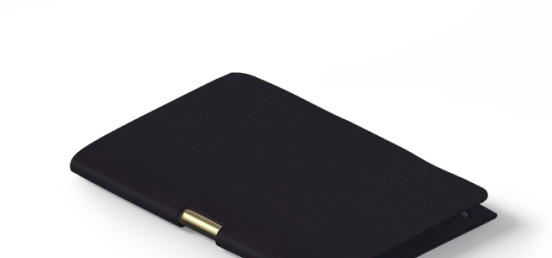
What does a web designer do?
The field of web design encompasses the creation and design of websites. A web designer’s responsibility is to combine various design elements and technologies into a website that is visually appealing and user-friendly. Here you will find information on the duties of a web designer.
Our article will examine the responsibilities, skills, and tools associated with web design, as well as the importance of user experience and accessibility in web design. You may be interested in a web design career or want to learn more about the field, so please continue reading!
Web designers: What do they do?
A Web Designer helps create and oversee a website’s visual aspects. Web designers plan, design, and develop websites and web pages, often combining text, photos, graphics, and video clips with other visual elements.
As well as handling the design and layout, a Web Designer may be responsible for updating existing pages or creating a brand-new website.
Web designers are responsible for developing a clear understanding of the goals and needs of websites in consultation with clients and stakeholders.
Their objective is to help a company present itself in a positive light to a target audience by creating websites, designs, and layouts.
It is essential for Web Designers to oversee visual aspects, including color, layout, and font, while also ensuring smooth usability for the user.
Whether working for an agency providing digital design services to clients, or in-house development, marketing, or design departments, a Web Designer will design websites, optimize them for speed and ease of use, conduct testing, collaborate with developers to ensure proper integration, and incorporate branding elements.

The characteristics of a successful web designer
Web design is a broad field, but the most successful Web designers tend to share a few things beyond their skills. Listed below are the top characteristics of an effective designer:
1.Their portfolios are a passion for them
Creating an excellent portfolio website will take a lot of time, effort, and energy.
A Web Designer must have a polished, professional, and eye-catching portfolio to showcase past projects you are most proud of and demonstrate to any would-be client or employer that you can do the same for them.
Various web design work samples should demonstrate your versatility as a web designer. Moreover, a quality approach is preferable to a quantity approach.
2.Excellent business sense
Especially for those who are starting in their career and are therefore more likely to survive freelance, web designers should have a keen business sense.
Web Designers must thoroughly understand their competitors’ pricing structure when negotiating with a company over pricing. This will enable them to market their services competitively based on their expertise and location.
The best Web designers know how to calculate realistic budgets, pricing, and schedules for the services they propose, another skill that requires an understanding of numbers.
Freelancers who work as web designers must also deal with contracts, which the most talented designers do not take lightly. Make sure you understand the terms before signing off without carefully reviewing the pricing.
3.They are organized and adhere to schedules
The most talented Web designers can’t keep track of how many websites they have designed during their careers.
Over time, they developed clear processes that have been continuously refined. Due to this, they can identify – and avoid – any potential pitfalls or mistakes in advance.
Time is an imperative component of any website project. A competent web designer should provide clients with a document detailing how they intend to develop a website.
In addition, effective Web Designers will inform stakeholders in advance if they encounter a problem that could threaten deadlines.
Even though one should never miss a deadline, a competent web designer will be transparent in explaining why they could not meet it.
4.They’re flexible
Even though we emphasize the importance of meeting deadlines, it is also pertinent to acknowledge that sometimes circumstances beyond our control arise.
A web designer must adjust the scope of a project on the fly if clients change their minds about a design feature. In addition, the web development team encountered a technical issue with the proposed website’s back end.
Web designers need to be able to respond to problems when they arise and resolve them quickly as possible.
Furthermore, Web Designers should be flexible in their work assignments. Creating a website could eventually involve duties that Web Designers are not typically responsible for – such as content creation or search engine optimization – but if one approaches these challenges enthusiastically, everyone will benefit.
5.They have strong communication skills
A knowledgeable Web Designer will explain the web technologies and design ideas they’re considering straightforwardly without resorting to jargon.
It is highly unlikely that Web Designers can be trusted to communicate company messages through their design if they cannot convey intricate concepts and terms to clients – verbally or in writing over email.
A web designer’s role involves interacting with various professions, many of whom have completely different responsibilities. Web Designers must learn how to manage all of these relationships smoothly.
6.Encourage idea sharing
Clients or stakeholders will always have ideas about how their company’s website should be designed. A web designer’s job is to listen to the ideas and consider them as they develop the website – sometimes those ideas are helpful, and sometimes they aren’t.
It is impossible to t where the next innovative design idea will come from. An experienced web designer will also search the web for inspiration and investigate the latest trends in web design.
7.Familiarity with the latest design tools
Some updated tools are being developed, improved, or regularly introduced to facilitate web design.
An effective web designer continuously explores the use of these tools to increase their efficiency and effectiveness.
Up-skilling may require taking online courses, workshops, or boot camps or just staying on top of webinars, YouTube videos, and blogs covering the latest design trends.
Web designers often benefit from these tools because they enable them to concentrate on the big-picture components of their websites rather than being distracted by small details.
Conclusion
A web designer is responsible for designing websites. They use a combination of design elements, technologies, and programming languages to create visually appealing and user-friendly websites.
Web designers must possess various skills, including design, coding, and user experience, and should know relevant tools and technologies.
They work closely with other team members and clients to ensure that the final product meets the specific needs and requirements of the project. Overall, web designers play a crucial role in the digital landscape, helping to create the websites we use and interact with daily.




Leave a Reply